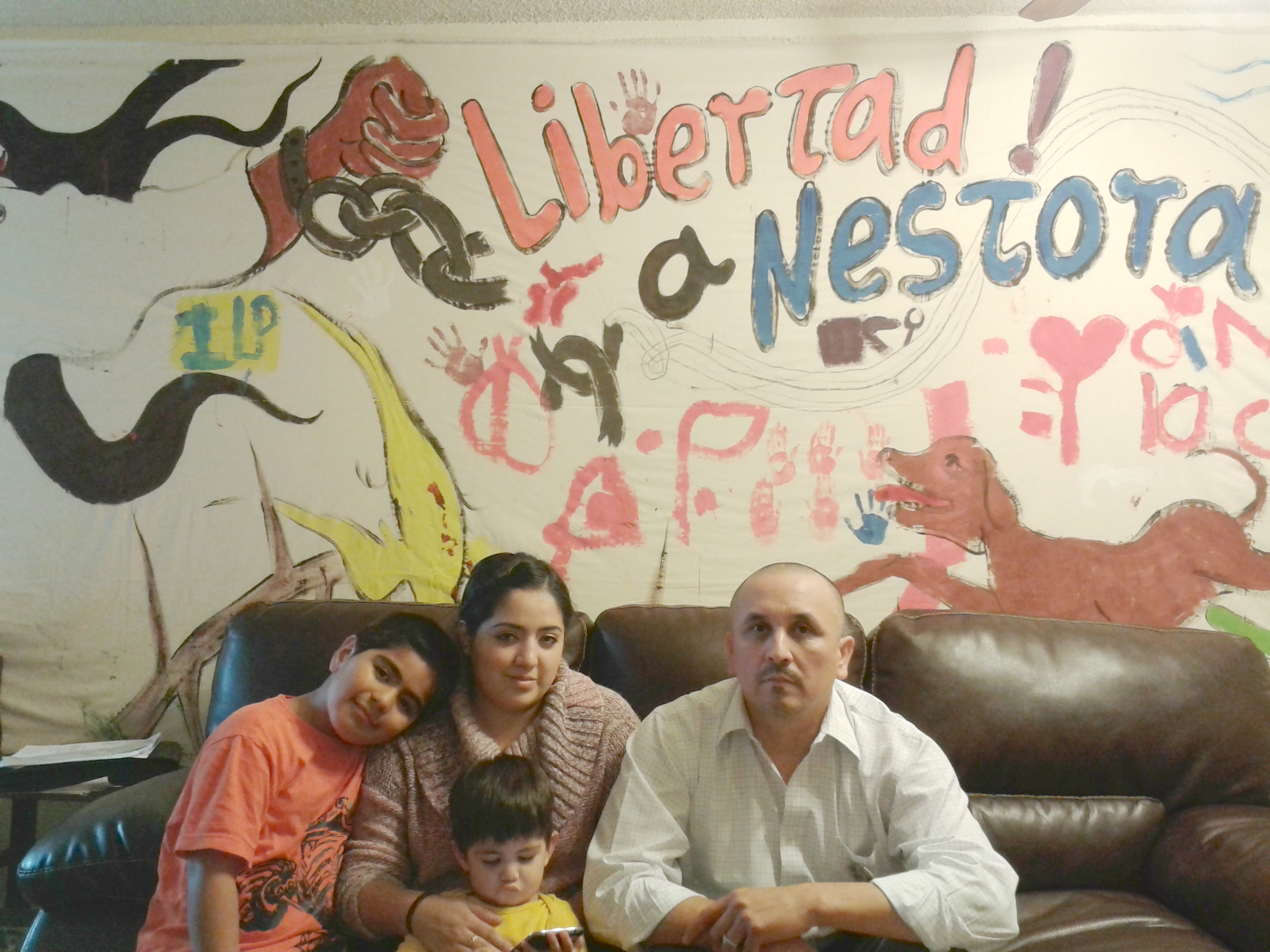Last Sunday, Nestora Salgado’s daughter visited her in the Mexican prison where the Renton resident has been held since August of last year. As usual, the 42-year-old Salgado was wearing the prison uniform for men—pants rather than a skirt, and oversized shoes—that she was given without explanation. Her daughter, Saira, believes authorities are trying to humiliate the woman who had returned to her home town in southwestern Mexico on humanitarian missions and ended up becoming the leader of a community police force that took on criminal cartels and corrupt government officials.
That’s undoubtedly why authorities also had a man strip search Salgado upon her arrest, says Saira, speaking on the phone this morning from Mexico, where she lives.
This desire to punish her as a woman provides some insight into why Salgado, among dozens of other community police members later arrested, has been singled out for harsh treatment. She is being held in a high-security prison, given rocks in her food, denied clean drinking water and kept in isolation except for the visits her daughter is allowed to make every 12 days—a visit that entails a 24-hour bus trip for Saira. One member of a Mexican Congressional delegation that visited Salgado in late May described her treatment at a press conference as “psychological torture.” An extreme machismo is likely fueling such treatment, both members of that delegation and Salgado’s family members say.
An international effort to free Salgado has consequently arisen, and it received a boost yesterday when Congress member Adam Smith appeared at a press conference to call attention to her case. The Tacoma Democrat said he was trying to build up pressure that would “shame the Mexican government into doing the right thing.” In April, Smith wrote a letter to Secretary of State John Kerry, asking for his intervention. The State Department has since talked to the Mexican government about the case, Smith said at yesterday’s press conference, held at Seattle University, which has a human rights clinic working on Salgado’s behalf. The Congress member conceded, though, that he didn’t know whether Kerry has taken any further steps. “We’d like him to be more involved.”
Salgado addresses a crowd in Olinala, Mexico.
What makes the continued imprisonment of Salgado all the more remarkable is that a federal judge in March struck down the federal charges against the American citizen and ordered her immediate release. She had been charged with “organized crime” in relation to arrests made by the community police force she was leading in the town of Olinala. That force—a grassroots alternative to the town’s police force, which many believed to be corrupt—was recognized by Mexican law and encouraged by the state governor. But as I reported last December, the governor changed his tune when Salgado’s police force arrested the local sheriff for allegedly tampering with a crime scene and attempting to steal property belonging to two homicide victims.
Salagado bluntly refused the governor’s entreaties to let the sheriff go, according to family members. That’s when soldiers swooped down and spirited her away to a prison 2,000 miles away. In charging her with organized crime, authorities claim she conspired with other members of the community police to “kidnap” the sheriff and other people they had arrested. The federal judge rejected that view, saying that “the community police can in no way be conceived of as a criminal organization,” according to a translation provided by Thomas Antkowiak, director of the Seattle University human rights clinic working on the case. Rather than release her, authorities brought new, state charges against her.
At his Renton apartment after the press conference, Salgado’s husband, Jose Avila Baez, joined another of Salgado’s daughters, Grisel Rodriguez Salgado, in discussing the formation of the community police force in early 2013. Olinala had been racked by violence, with kidnappings becoming more and more common. “Before you would pay money and you would get your family members back,” Jose said. “Now you’d get them back in a bag,” Grisel chimed in. Corpses were being found on the street, dismembered. Meanwhile, the cartels were demanding that ordinary citizens as well as businesses pay a protection fee that would prevent the same fate from happening to them.
Jose goes to his computer and calls up a picture of a town meeting held to discuss the violence. Salgado, in town then on one of her extended sojourns to deliver clothes and toys, gave her first speech, asking the town officials why they weren’t putting a stop to it all. Community members, including Salgado, then decided to expel some of the town’s known criminals themselves. Their police force was born.
Violence did go down, according to Jose and Grisel. But now, with the arrest of Salgado and other members of the community police force, it’s risen again, they say. And they’re worried that Saira, who lives in Olinala with her Mexican husband, is a target.
Last month, Saira was traveling on a bus to the press conference held by the Congressional delegation that visited Salgado. Suddenly, she relates, two armed men told the bus driver to stop. Then they pulled off a women who was in Saira’s assigned seat and who looked like her; both women were wearing black and had their hair in buns. From the floor, where the rest of the passengers were ordered to lie, Saira heard four shots. Inside the bus, unaware that her mother had just been killed, was the woman’s daughter, around 4 years old.
Saira, now afraid to leave her house after dark, says she plans to return to the U.S. once her mother is freed. There’s no telling when that will happen, but there is some movement in the state court case. A hearing is set for July 5.








